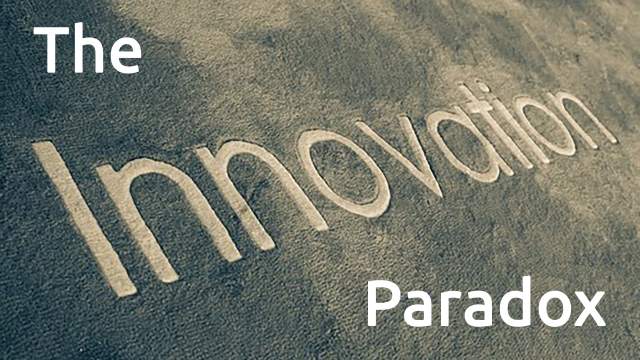The Innovation Blueprint: Redefining Executive Excellence
A senior executive is a pivotal role within an organisation. They typically occupy high-level positions such as Chief Executive Officer (CEO), Chief Operating Officer (COO), Chief Financial Officer (CFO), or other senior management roles. These individuals are responsible for making strategic decisions, guiding the organisation towards its goals, and overseeing the overall operations and performance.
In the realm of senior and general executive education, the Executive General Management Program is more than just an opportunity for professional growth—it is a transformative experience that equips leaders with the tools and insights needed to thrive in today’s fast-paced business world. These courses cater to seasoned executives looking to deepen their strategic thinking, enhance their leadership skills, and adapt to evolving market demands.
Participants often include executives from diverse industries seeking to refine their management approach, leverage innovative practices, and drive organisational change. By enrolling in these programs, leaders not only stay ahead of industry trends but also position themselves for career advancement and more significant impact within their respective organisations.
Why are leadership programmes so crucial for organisational growth?
Leadership programs are crucial for organisational growth as they cultivate and enhance critical skills and attributes among employees that directly contribute to the company’s success and development:
- Skill Development: Leadership programs focus on developing essential skills such as decision-making, communication, problem-solving, and strategic thinking. These skills empower employees to handle challenges effectively and drive innovation within their teams.
- Employee Engagement: Investing in leadership development demonstrates a commitment to employees’ professional growth and fosters a culture of learning and development. This, in turn, increases employee motivation, engagement, and loyalty to the organisation.
- Succession Planning: Leadership programs identify and nurture future leaders within the organisation. By preparing employees for higher-level roles, companies mitigate the risks associated with leadership gaps and ensure continuity in leadership effectiveness.
- Enhanced Team Performance: Effective leaders positively impact team dynamics, fostering collaboration, productivity, and morale. Leadership programs equip participants with the tools to build and lead high-performing teams that achieve organisational objectives.
- Adaptability and Innovation: In today’s rapidly changing business environment, leaders must be adaptable and innovative. Leadership programs expose participants to new perspectives, trends, and best practices, enabling them to lead organisational change and drive innovation initiatives.
- Organisational Culture: Leaders set the tone for organisational culture. Leadership programs emphasise the importance of values, ethics, and inclusive leadership, shaping a positive and supportive work environment that attracts and retains top talent.
Overall, leadership programs are instrumental in cultivating capable leaders who not only steer the organisation towards growth but also inspire and empower their teams to achieve excellence.
Who is the perfect fit for enrolling in such courses?
A senior management course equips individuals with the necessary skills and knowledge to excel in these demanding roles. Here are the advantages of undertaking such a course:
- Enhanced Leadership Abilities: Courses often focus on leadership development, helping participants refine their leadership styles, improve decision-making capabilities, and hone their communication skills.
- Strategic Thinking: Senior management courses emphasise strategic planning and execution, equipping executives with frameworks for analysing market trends, identifying opportunities, and mitigating risks.
- Networking Opportunities: These courses provide a platform to connect with peers from diverse industries, facilitating knowledge exchange, collaboration, and the sharing of best practices.
- Global Perspective: In an increasingly interconnected world, understanding global business trends and practices is crucial. Senior management courses often include modules on international business, cross-cultural management, and global market dynamics.
- Staying Ahead of the Curve: Continuous learning is essential for staying competitive. Senior management courses offer updated insights into industry trends, emerging technologies, and management strategies, enabling executives to stay ahead of the curve.
Who should consider undertaking a senior management course?
- Aspiring Leaders: Such courses can benefit professionals aiming for senior executive roles or seeking to transition into leadership positions.
- Current Senior Executives: Even experienced senior executives can benefit from refreshing their skills, gaining new perspectives, and reinforcing their leadership competencies.
- Entrepreneurs: These courses can provide valuable insights into scaling operations, strategic planning, and effective management for individuals running their businesses or startups.
Ultimately, the advantages of a senior management course extend beyond individual career development to organisational success. By equipping senior executives with enhanced leadership capabilities, strategic understanding, and a global perspective, these courses contribute significantly to driving innovation, fostering a positive work environment, and maintaining competitive advantage in today’s dynamic business landscape. Thus, investing in continuous learning through senior management education not only benefits the individuals but also positions their organisations to thrive in an increasingly complex and competitive global economy.
Conclusion
Participating in the Management Programme for Executives is instrumental for leaders navigating the complexities of modern business environments. These programs foster invaluable connections, provide exposure to cutting-edge business practices, and cultivate leadership excellence. Executives emerge with refined capabilities in decision-making, problem-solving, and strategic planning, ready to lead transformative initiatives and drive sustainable growth.
By embracing continuous learning and development, senior executives not only enhance their leadership acumen but also contribute significantly to organisational resilience and innovation. Investing in executive education is not just about personal career advancement—it is a commitment to shaping the future of business and driving meaningful change in a dynamic global economy.







